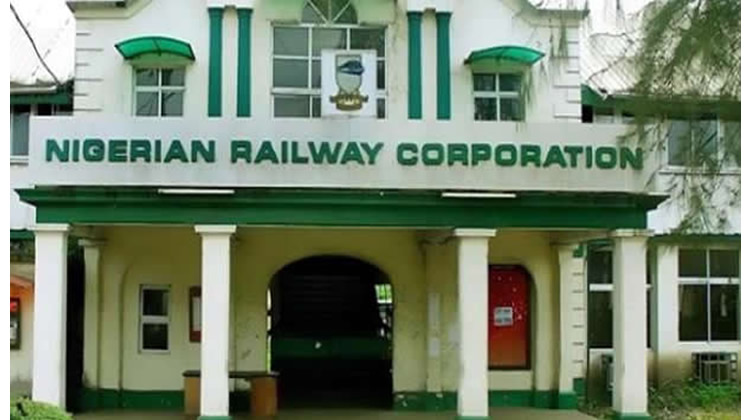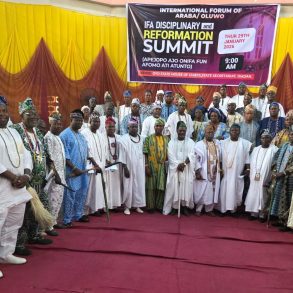NIGERIA’S ambition to expand its transportation system received a boost midweek after the Nigerian Railway Corporation commenced the haulage of imported cargo from the Lagos ports to Ibadan, Oyo State.
After missing several deadlines for its commencement over the past two years, the movement of containers via one of the three standard gauge lines from Apapa to Moniya is significant.
To sustain this requires comprehensive reforms to reposition Nigeria’s rail sector as the major player in cargo haulage.
At the inauguration, the Minister of Transportation, Saidu Alkali, explained that three coaches of 30 wagons each would be hauling 90 containers per day between Apapa and Moniya.
From there, plans are afoot to re-commence the Ibadan-Kano narrow gauge freight service.
Alkali promised that the two remaining lines in Apapa, which were being delayed by the Nigeria Customs Service scanner building, would be in use after the structure had been demolished.
A small beginning, but it raises hopes of the restoration of the NRC’s past glory when it was a critical facilitator in Nigeria’s freight and international trade, ferrying commodities to and from the ports.
With 3,798 kilometres of rail compared to 195,000km of roads, Nigeria’s over-reliance on its shabby roads to move goods and passengers and evacuate cargo from the Apapa ports to the hinterland is obvious.
This has fuelled the notorious congestion at the ports, gridlock, dilapidated roads, accidents, extortion by security agents, high charges, demurrage, and insecurity.
The Apapa area has since lost its serene lustre.
A tycoon, Aliko Dangote, estimated that port congestion precipitated a weekly loss of N140 billion. Imports destined for Nigeria were re-routed to Pointe Noire (DR Congo) and neighbouring ports in West Africa.
The Federal Government should drive the revitalisation with vigour. WorldData ranks Nigeria 53rd globally by rail network, with a rail per capita of 1.7 centimetres. In second place is Australia (1.8km), Canada (1.41km), Sweden (1.29km) and Namibia (1.26km).
Rail transportation, which the British colonialists inaugurated in Nigeria in 1898 between Lagos and Abeokuta, is still crawling. The NBS said the state-owned NRC generated N1.3 billion in the second quarter of 2023, a 33 per cent increase from N983.87 million in Q1, and a 76.6 per cent increase compared to the N740 million in Q2, 2022. Comparatively, the world’s top three railway companies by revenue in 2021 were Deutsche Bahn (Germany) $55.66 billion; SNCF Group (France) $41.09 billion and Indian Railways $27.32 billion, according to London-based GlobalData. Nigeria should aspire to these lofty heights.
Two major encumbrances must be overcome. First is Nigeria’s flawed federalism where the 1999 Constitution enshrines railways on the Exclusive Legislative List. The second is poor funding. Several attempts by the National Assembly to repeal the restrictive Railways Act 1955 that vests rail operations solely in the hands of the Federal Government died on the altar of politics.
Immediate past president, Muhammadu Buhari, launched an ambitious 25-year Railway Development Plan to link all the 36 states by rail. He had planned to construct the Lagos-Calabar ($11.17 billion), Ibadan-Kano ($5.3 billion), Kano-Maradi ($1.9 billion) and Port Harcourt-Maiduguri ($3.03 billion).
Buhari completed the Lagos-Ibadan line with $1.5 billion. This route, as well as the Abuja-Kaduna Line, concentrates on the less-profitable passenger traffic. Several other countries are progressing speedily to the bullet train era. In the twilight of his tenure, Buhari also signed an amendment to the constitution that grants states leeway over railways.
Therefore, Alkali and President Bola Tinubu should deepen rail transportation in Nigeria through liberalisation. In collaboration with the NASS, and state governments, the Railway Act should be repealed and a new liberalising one along the lines of the telecoms sector reforms of 2001 enacted. This will attract private investment, especially the desperately needed foreign direct investment; free the government to concentrate on support infrastructure and regulation, reduce the burden on the roads, and generate jobs and tax income.
The government should fast-track the reforms, states, singly and in combination, should attract local and foreign investors for local and regional networks.






